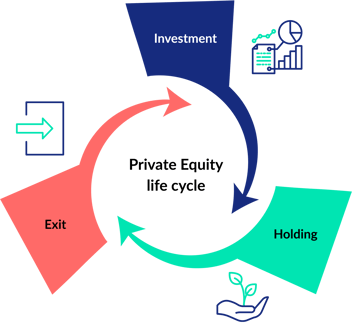Why Smart MSPs deliver greater investor returns
By Martin Ford
Published on August 2, 2021

There are many examples in the world of sport where the talents of individuals, teams, or the technologies they leverage have made the difference between a competitive contender and outright victor. The world of business is no different but perhaps sometimes it is less clear where an organisation must focus to take advantage of the opportunities available.
Unfair advantage
When it comes to Managed Service Providers (MSPs), the opportunity to differentiate from the pack may seem obvious to some but the road to get there can be a very rocky one. Unfortunately, for many service providers who are bogged down with keeping the wheels turning and the lights on, there is no spare bandwidth to think and act more strategically. Business as usual is the best they can do, and sadly their financial results usually reflect this.
What if there was an unfair advantage opportunity to focus on that could help change things for the better? What if cultivating success was not so elusive after all but just needed a different approach and a new mindset? What if, by transforming into a Smart MSP, you could become the kind of service provider customers love to buy from and investors love to invest in? Imagine what that would do to your financial performance and company valuation!
Where to begin?
Nothing drives innovation quite like competition and MSPs are seeing new entrants invade their space that are agile and unbound by legacy. The opposing forces pulling at traditional MSPs means they face difficult and conflicting investment demands. Do they upgrade the network, create new services, enhance the customer experience, or try to do all of the above?
Just attempting one of these initiatives could take years to show value but the need for transformation is no longer a nice to have or something that Dave the developer can do as a side project on his evenings and weekends. To survive and prosper, MSPs must transform their operations and deliver the user experience customers demand. The problem is that traditional methods of delivering transformation exaggerate the complexity, cost and time scales beyond anything investors would consider acceptable.
This is why most attempts at transformation will never reach their full potential but then most attempts are destined to be, at best, challenging right from the start. Almost every MSP has embarked upon some form of transformation, and at every attempt they will be subject to some or all of the associated pitfalls when either struggling to execute it on their own or getting caught in the expensive professional services trap. Neither of these options is desirable or sustainable.
Putting the 'smart' in MSP
Smart MSPs have successfully transformed their operations and customer experience so that they now find themselves in a very desirable position. Because they think and act differently, their financial performance reflects a business that is primed for the next stage of success. With operational costs under control, and a healthy EBITDA, they represent the types of organisations with the right capabilities private equity firms look for when considering an investment.

It’s those capabilities that set Smart MSPs apart because investors know, once in their portfolio, they can achieve organic growth as well as consider roll-up investment opportunities. Further, when the time is right to exit, they can do so at the right valuation or better. Smart MSPs can do this because they have effectively transformed through consolidation of disparate tools, integration of internal, third party and external systems and intelligent automation of processes and tasks. Whilst doing this they always remain focused on improving the customer experience and making sure their clients can self-serve efficiently.
Without advanced automation, realising the benefits of customer self-service is just a pipe dream because it must be built upon the successful foundations of consolidation and integration. Only then, can the opportunity to re-engineer the customer experience be realised, with complete transparency in provisioning, support and billing delivered through a single customer portal. Many transformation initiatives simply focus on the technical aspects and the customer experience is not considered or is an afterthought.
A wise investment
With the right technology platform underpinning operations, digital transformation no longer needs to be the high risk, prohibitively expensive and time-consuming effort it used to be. As technology due diligence is increasingly important for investors, service providers must get their operations in order, and that means successful transformation has become even more critical. MSPs must be able to demonstrate their capabilities if they are to be considered as a convincing funding opportunity by private equity firms.
Those that don’t fulfil their transformation goals, may miss out on the next funding round opportunity, or worse they may get completely overlooked. In any case, they will be in a weak position to negotiate their valuation to a prospective investor. In the end, they are more likely to be swallowed up at a discounted price by a more successful competitor, one capable of quickly integrating new assets. Digital transformation has not only become the differentiator in the market for end-users to discern who to buy IT services from, but also for where investors decide to put their money.
The unfair advantage, therefore, becomes a far greater multiplier of success on different levels. The end result is, those MSPs that succeed both in the hotly competitive market for managed services and attracting private equity funding, will take a disproportionately large share of the spoils. The gateway to this success is how quickly any service provider can put effective transformation into place and turn that into a winning formula for the quality of their service with existing and new customers alike.
With operational costs under control and a healthy EBITDA, Smart MSPs represent the types of organisations private equity firms look for when considering an investment.
